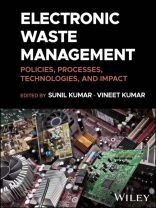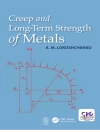ELECTRONIC WASTE MANAGEMENT
Current knowledge on electronic waste management strategies, along with future challenges and solutions, supported by case studies
Electronic Waste Management maps out numerous aspects of health and environmental impacts associated with electronic waste, thoroughly detailing what we can expect in terms of the use of electronic products and the management of electronic waste in the future. The book assists readers in grasping the fundamentals of the entire e-waste system by covering various factors related to the health and environmental impacts of electronic waste, as well as a perspective on the subject based on current global recycling strategies. Presented in a straightforward and scientific manner, the book also covers many electronic waste management process technologies.
By inviting together, a diverse group of experts, including researchers, policymakers, and industry professionals who generously shared their knowledge and experiences in the field to tackling this global issue, Electronic Waste Management enables readers to foster a deeper understanding of the complex issues surrounding electronic waste and to explore innovative solutions that can help mitigate its adverse effects on the environment and health of human and animals.
Sample topics covered in Electronic Waste Management include:
* Global electronic waste management strategies and different global waste models, including their social, ecological, and economical aspects
* Economic impacts of e-waste, including cleanup costs and global loss of valuable resources like metals and plastics
* Value creation from electronic waste (closing the loop) and future prospects in sustainable development
* Negative impacts of e-waste, including environmental pollution and human health risks, such as when harmful chemicals leach into water sources
Electronic Waste Management serves as a highly valuable resource for anyone involved in the global e-waste arena, including producers, users, recyclers, policymakers, academics, researchers, and health workers, by increasing knowledge and awareness surrounding health and environmental impacts that electronic waste poses.
Yazar hakkında
Sunil Kumar is a Senior Principal Scientist at CSIR-National Environmental Engineering Research Institute, Nagpur, India. He has more than 24 years of experience in leading, supervising and undertaking research in the broader field of Environmental Science and Engineering with focus on Solid and Hazardous Waste Management.
Vineet Kumar is currently working as a National Postdoctoral Fellow in the Department of Microbiology at Central University of Rajasthan, India.












